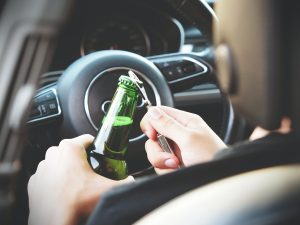Drink-driving, also known as driving under the influence (DUI), is a serious offense that involves operating a motor vehicle while under the influence of alcohol or drugs. This impairment significantly diminishes the driver’s ability to react swiftly, make sound judgments, and control the vehicle safely, putting themselves and others at grave risk.
The Dangers of Drink-Driving
The effects of alcohol on the body are particularly detrimental to driving abilities. Alcohol consumption can impair:
- Visual perception: Blurred vision, difficulty judging distances, and impaired night vision
- Reaction time: Delayed responses to unexpected situations, increasing the risk of collisions
- Coordination: Reduced muscle control, making it harder to steer, brake, and maneuver the vehicle
- Judgment: Impaired decision-making, leading to poor choices and increased risk-taking behaviors
- Serious Injury : Serious Injury and death can result causing harm and tragic consequences
Introduction
The Department for Transport’s (DfT) latest report on road collision (RTA) casualties in 2021 paints a disturbing picture, revealing a worrying surge in deaths and serious injuries caused by drink-driving on British roads. According to their estimates, drink-drive collisions resulted in over 6,740 injuries of varying severity, with the number of fatalities (260) reaching a staggering 12-year high.
Defining Drink-Drive Collisions
The government’s RTA statistics define a drink-drive collision as a reported incident on a public road in which someone is killed or injured, where at least one of the involved motor vehicle drivers or riders:
- Failed a roadside breath test, exceeding the legal alcohol limit
- Refused to provide a breath test specimen when requested by the police
- Died within 12 hours of the collision and was later found to have exceeded the legal blood alcohol limit
Alcohol Limits and Injury Categorization
The legal alcohol limit in England, Wales, and Northern Ireland is 80mg of alcohol per 100ml of blood, higher than any other European country, where the limit ranges from 20mg/100ml to 50mg/100ml. Scotland, however, reduced its limit to 50mg/100ml in 2014.
Government statistics categorize all types of road users killed or injured in drink-drive collisions as drink-drive casualties. The term ‘casualty’ encompasses anyone killed or injured in an RTA collision. For reporting purposes, casualties are often sub-divided into fatalities (killed within 30 days of the collision), seriously injured, and slightly injured.
Key Statistics from DfT’s Report
- An estimated 260 people lost their lives in fatal, drink-drive collisions in 2021, representing 17% (1 in 6) of all road collision fatalities that year.
- A further 1,610 people were seriously injured in drink-drive crashes in 2021.
- In total, around 1,880 people suffered fatal or serious injuries from drink-drive collisions in 2021, a 23% increase from 2020.
- Overall, DfT estimates that 6,740 people were killed or suffered injuries across all severities in drink-drive collisions in Britain in 2021, a 4% increase from 2020.
- Breath test data has also shown an increase in drink-driving, with 6% of drivers failing breath tests in 2020/21, double the 3% figure from ten years earlier in 2011.
Impact of COVID-19 Pandemic
DfT acknowledges that the COVID-19 pandemic may have influenced the number of reported drink-drive collisions and casualties in 2021. Reduced traffic and collisions during periods of national restrictions could have impacted driver behavior.
Support for Victims
Sudden, severe injury or loss of a loved one in an RTA collision has a devastating impact on the individual and their family. Victims of drink-driving collisions face the added emotional burden of knowing that their suffering could have been prevented.
Experienced personal injury specialists can provide meaningful guidance and support to victims of drink-driving RTA collisions. This includes access to rehabilitation services, interim payments to ease financial hardship, and compensation settlements to meet their long-term needs.
Conclusion
The alarming rise in drink-driving collisions and casualties demands urgent attention. Effective enforcement of drink-driving laws increased roadside breathalyzing, and public awareness campaigns are crucial to combat this issue and protect lives on British roads.
Claim Time
In the aftermath of a careless driving accident, it’s crucial to act promptly to protect your rights and maximize your chances of success. Claim Today understands the importance of time in these cases and encourages you to contact us as soon as possible to discuss your claim.
Claim Time No Win No Fee: Peace of Mind and Risk-Free Representation
Our No Win No Fee service ensures that you can pursue your careless driving accident claim without worrying about upfront legal costs. You will only pay our fees if we successfully win your case. This arrangement eliminates the financial barrier that often prevents victims from seeking justice.
Expert Guidance and Support Throughout the Process
Claim Today’s team of experienced personal injury solicitors will guide you through every step of the claims process. We will handle all the legal complexities, gather evidence, negotiate with the other party’s insurance company, and represent you in court if necessary.
Claim Today
If you have been injured in a careless driving accident, don’t hesitate to contact Claim Today for a free consultation. Our team will assess your claim, explain your options, and provide you with the expert guidance you need to pursue compensation. With our No Win No Fee service, you can focus on your recovery while we handle the legal aspects of your claim. Remember, time is of the essence, so act now to protect your rights and secure the compensation you deserve



